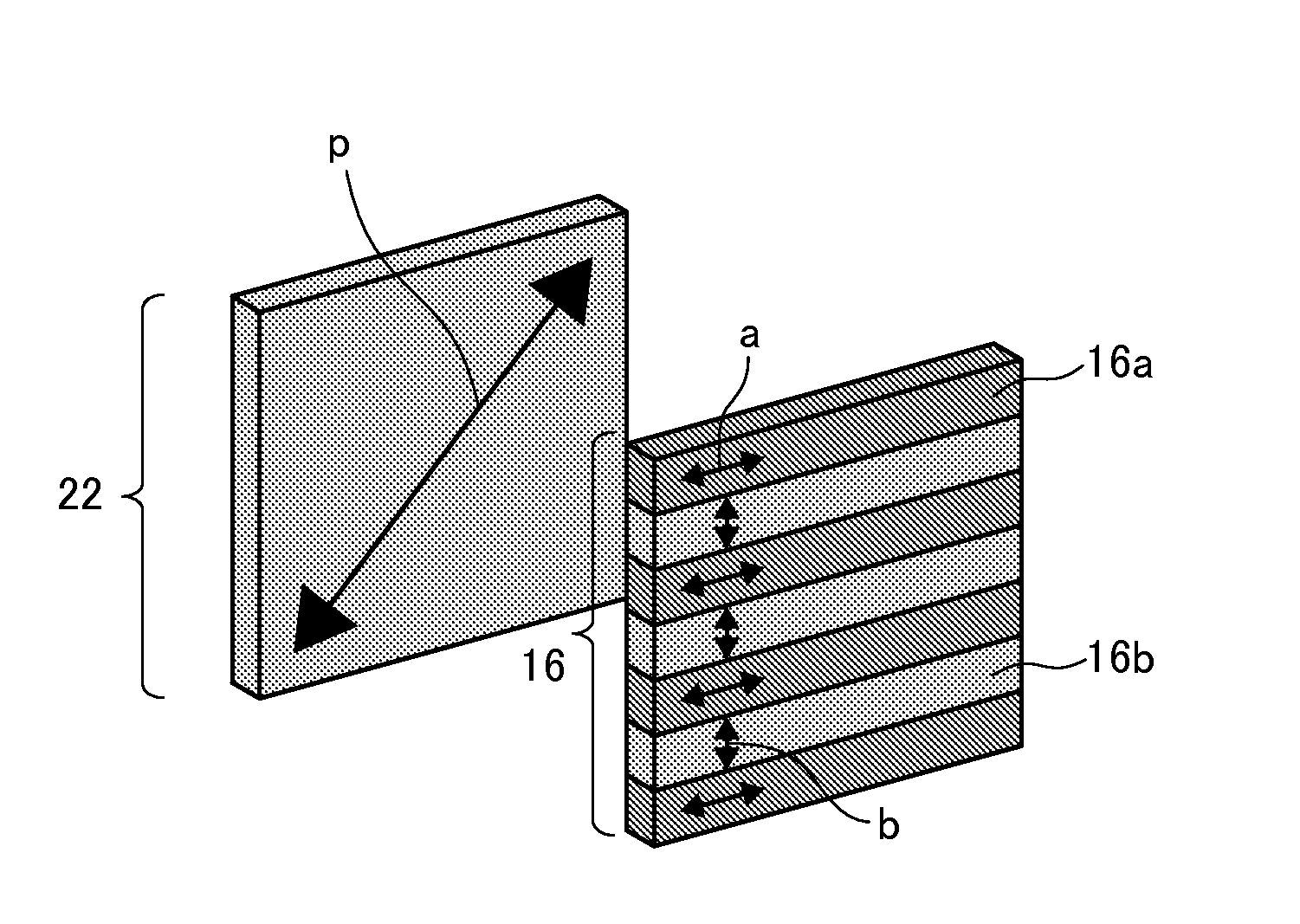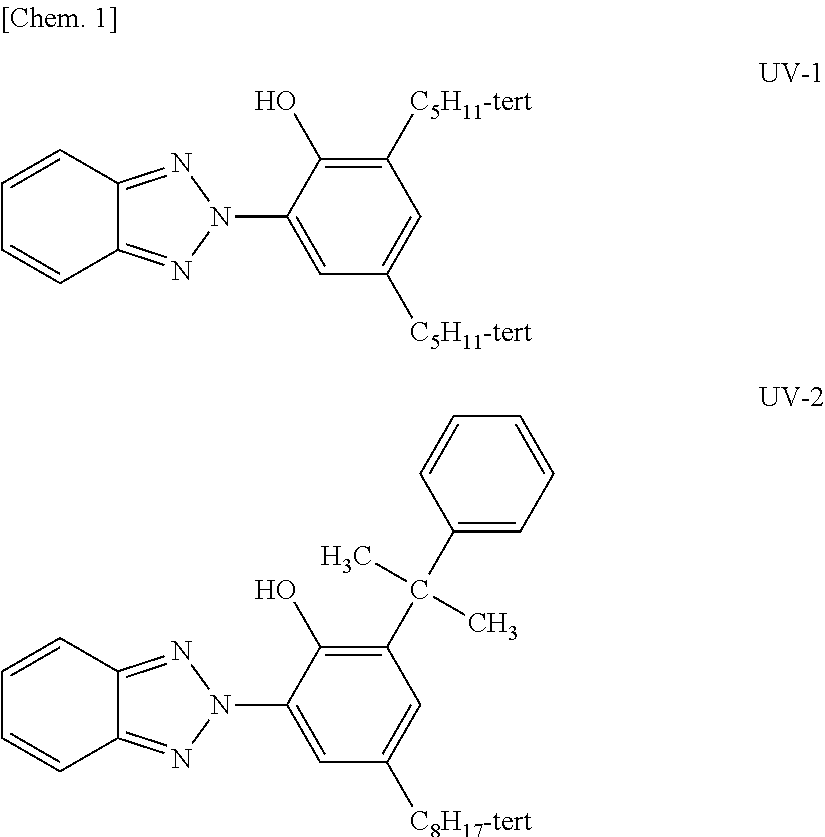Optical laminate
- Summary
- Abstract
- Description
- Claims
- Application Information
AI Technical Summary
Benefits of technology
Problems solved by technology
Method used
Image
Examples
example 1
Preparation of Transparent Support
[0148](Preparation of Cellulose Acylate Dope)
[0149]The following composition was put into a mixing tank and stirred such that the respective components were dissolved, thereby preparing a cellulose acylate solution.
[0150]In the makeup of the following components, the amount of the plasticizer and the ultraviolet absorber added is represented by “part by mass” with respect to 100 parts by mass of cellulose acylate (cellulose acetate having a degree of acetyl substitution of 2.88).
[0151](Makeup of Components)
Plasticizer (P-1) 12 parts by massUltraviolet absorber (UV-1)1.8 parts by massUltraviolet absorber (UV-2)0.8 parts by mass
[0152]The makeup of the solvent is as follows. A cellulose acylate dope was prepared by adjusting concentration thereof such that the concentration of cellulose acetate became 17% by mass.
[0153](Makeup of Solvent)
Methylene chloride (a first solvent)92 parts by massMethanol (a second solvent) 8 parts by mass
[0154]Furthermore, t...
example 2
[0215]A transparent cellulose acetate support was prepared in the same manner as in Example 1, except that the thickness thereof was changed to 20 μm. By using the support, an optical laminate was prepared in the same manner as in Example 1.
example 3
[0216]A transparent cellulose acetate support was prepared in the same manner as in Example 1, except that the thickness thereof was changed to 25 μm. By using the support, an optical laminate was prepared in the same manner as in Example 1.
PUM
 Login to View More
Login to View More Abstract
Description
Claims
Application Information
 Login to View More
Login to View More - R&D
- Intellectual Property
- Life Sciences
- Materials
- Tech Scout
- Unparalleled Data Quality
- Higher Quality Content
- 60% Fewer Hallucinations
Browse by: Latest US Patents, China's latest patents, Technical Efficacy Thesaurus, Application Domain, Technology Topic, Popular Technical Reports.
© 2025 PatSnap. All rights reserved.Legal|Privacy policy|Modern Slavery Act Transparency Statement|Sitemap|About US| Contact US: help@patsnap.com



